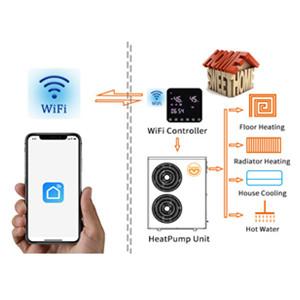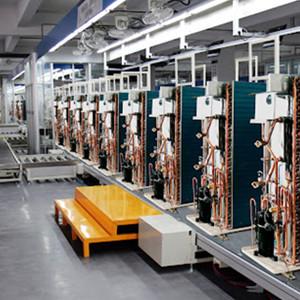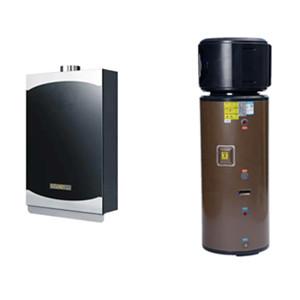Heat Pump Defrost Cycle in Summer
Winters are usually mild in some places, but even the Deep South isn't
immune to ice storms. Unfortunately, since local homeowners don't typically
experience harsh winter weather, they may not be equipped to handle a
refrigerated heat pump. To prevent this problem from happening to you, here are
some tips to help you stay ahead of the curve.
Causes of heat pump freezing in winter
Knowledge is key if you want to prevent your heat pump from freezing
during unusual winter ice storms. Obviously, the most common cause is low
temperature. When the temperature drops close to freezing, you may notice ice
buildup on the coils or refrigerant lines. Depending on your heat pump model,
it may offer a defrost cycle that can combat short freeze periods.
Low refrigerant levels are another common cause of freezing. Heat pumps
are more prone to freezing when refrigerant levels are low. It's a good idea to
have your heat pump checked by an HVAC professional before winter, as any HVAC
technician will make sure the pump has enough of the required refrigerant.
Improper installation is another culprit. If the heat pump is not
installed properly, the airflow can be blocked, causing the unit to freeze.
That's why it's critical to hire a licensed and experienced HVAC professional
for all of your heating and cooling needs.
Heat Pump Freeze Causes in Summer
Even in summer, heat pumps can often freeze over. This is why so many
products have defrost cycles. However, if your heat pump is completely covered
with ice, you will need to turn it off and remove the ice. If your model does
not have a defrost cycle, this may require you to hose the outdoor unit or let
it thaw.
In some cases, external causes cause the heat pump to freeze. For
example, if your gutters are dripping water directly onto the heat pump, you
can remedy the situation by repairing the gutters or redirecting the water
flow. If the pump is sunk too deep into the ground for proper drainage, raising
it with special feet or blocks can help, but this should be done by a technician.
Running a defrost cycle
Modern heat pumps have a defrost cycle as they are all prone to
freezing. The defrost cycle works by reversing the valve to air conditioning
mode, which turns off the outdoor fan and turns the outdoor evaporator into a condenser.
This heats the high-pressure refrigerant. As it circulates through the outdoor
coil, it melts the ice.
Even older models tend to have a defrost setting, though they may use a
mechanical timer instead of a handy temperature sensor and control module. If
your heat pump is an older model and you're having trouble running a defrost
cycle, it might be time for an upgrade.
Schedule annual HVAC maintenance
There are many things you can do to fix a frozen heat pump. For example,
clearing leaves and debris from clogged outdoor coils is an easy fix for any
homeowner. However, when you cannot identify the problem yourself, you will
need to call an HVAC technician.
Some problems that can cause a heat pump to freeze can include a damaged
defrost relay, a damaged defrost control or timer, a stuck reversing valve, a
restriction, or a damaged fan motor. Scheduling annual HVAC service before
winter hits can help you avoid these common problems.
Many homeowners like to schedule their preventative maintenance in late
fall or early winter as they start switching air conditioners for heating. This
is usually a no-brainer, although HVAC professionals do tend to be busier
between seasons. There's certainly nothing wrong with a midwinter inspection,
in fact, it can give you an edge.
Unlike some homeowners, you can tell a technician about any problems
your heating system has had since it was turned on in the winter, which can
help them identify and fix any problems faster.
Please contact us when you have more heat pump questions. We will give
you the most professional answer.






